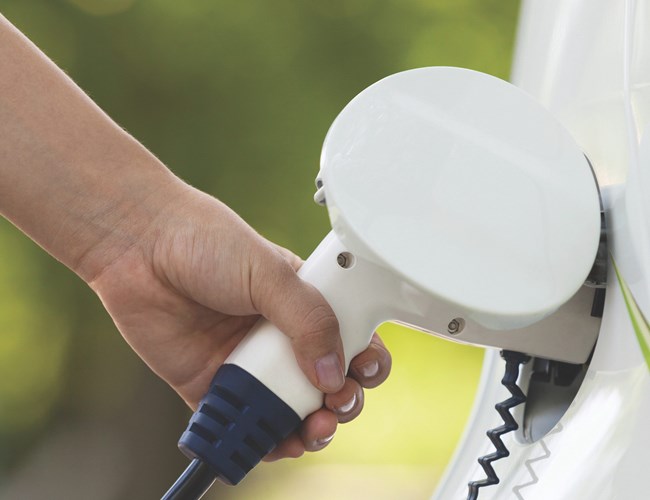We use cookies to ensure that we give you the best experience on our website. If you continue without changing your settings, we will assume that you are happy to receive all cookies on the Business Car website. However, if you would like to, you can change your cookies at any time

The start point for the best source of fleet information |
Word of mouth important for EV acceptance, panel hears
Date: 20 July 2023 | Author: Sean Keywood

First-hand reports from EV drivers will play a major role in combating misinformation about the vehicles, it has been said.
Speaking during a panel discussion, organised by New Automotive and the Energy and Climate Intelligence Unit (ECIU), on the UK Government's pending ZEV mandate, which will require manufacturers to sell an increasing proportion of EVs each year from 2024, ECIU head of transport Colin Walker said that with the vehicles no longer as rare as they were a few years ago, real-world experience of using them was becoming more prevalent.
He said: "I think for a long time EV ownership was seen as quite a niche thing; very few people actually did it or knew someone close to them who owned an EV.
"Polling that we've done at ECIU recently found we've crossed a bit of a watershed moment, in that just over half of the UK population now have a close friend or family member who owns an EV, and 75% of those people report EV ownership being a positive experience.
"That's ultimately how I believe a lot of the kind of confusion, misinformation around EVs will be challenged, because some of the narratives people may be reading do not marry up with the experience of their next-door neighbour."
Walker said it was important to note that EVs were still an emerging technology that had seen some rapid progress, meaning some early reports about drawbacks with the vehicles were now out of date.
He said: "Battery technology has changed dramatically. There are still concerns expressed about the longevity, for example, of an EV's battery, and a lot of those concerns are based possibly on the experiences people had with the very first Nissan Leafs, which had short range and their batteries did degrade a bit, but that is old technology now.
"You've got Nissan now reporting that the battery lives longer than the car; the car can be scrapped and there's still a battery there that can be put for use in other ways such as large-scale battery storage.
"There's an oft-quoted study from Volvo suggesting it takes many thousands of miles before an EV breaks even when it comes to its carbon dioxide impact. Subsequent studies have proven that completely inaccurate.
"Typically in the UK, based on our electricity generation mix, an EV only needs to traverse 16,000 miles to offset the extra CO2 resulting from its manufacture. Typically, over its lifetime an EV emits just over 60% less CO2 than a petrol car, rising to 74% in 2030 as our electricity generation mix improves."
Giving a perspective from California, where a ZEV mandate is already in place, Janelle London of environmental group Coltura said that increasing numbers of EV drivers meant that myths about the vehicles were more likely to be challenged on an individual basis.
She said: "There's been a lot of misinformation about EVs, and it used to be that when someone would put out some piece of misinformation it would largely go unresponded to.
"Now that California has so many EVs and there are so many very happy EV drivers who are saving money, having a great experience, finding they can charge, you see a lot more people dispelling those myths just as individuals."
Discussing the UK's planned ZEV mandate directly, New Automotive chief executive Ben Nelmes explained that despite the threat of financial penalties for manufacturers not meeting targets, the scheme should not cost the industry more money overall.
He said: "We often hear that these schemes are over punitive or that they generally push up the costs for consumers or the car industry. Actually, the way that the Department for Transport is proposing to design this scheme is such that it's very unlikely there will be any additional costs overall put on to the industry.
"There will be the companies that struggle to sell more zero emission cars, that will have a financial penalty, but there will be equally those on the other side who are exceeding the targets that will be benefitting from this scheme."
When asked if receiving revenue from selling credits, as permitted under the scheme, to manufacturers who don't meet the targets themselves, could prompt strong-performing manufacturers to cut EV prices, Nelmes said: "Obviously it is up to the manufacturers what they do, but ideally in a competitive market, because they are going to make more money the more electric cars they sell, there should be an incentive for that credit revenue to be put back into reductions in prices, or better marketing or better consumer education."











